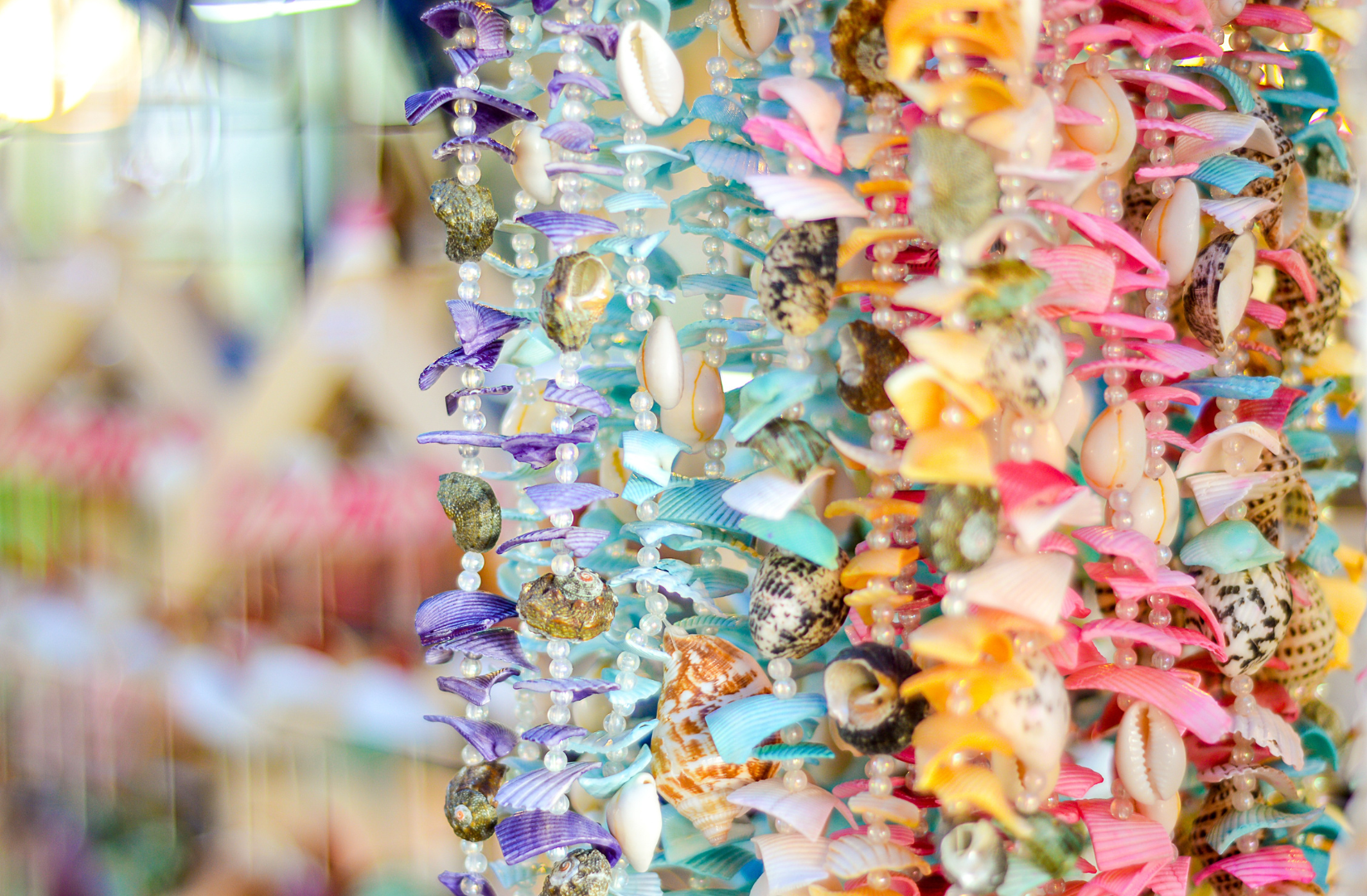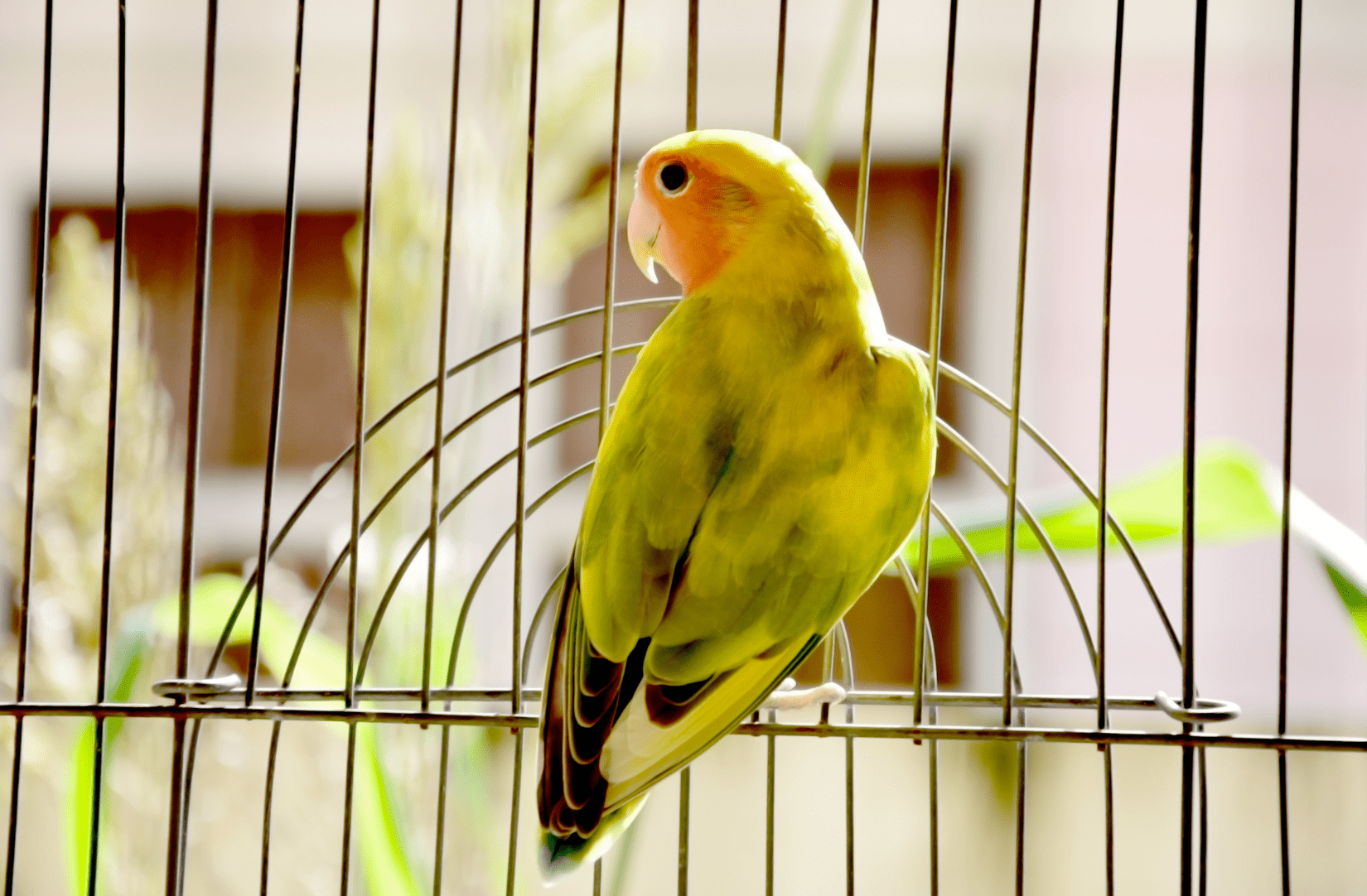Is it bad to ride elephants in Thailand? Swim with the dolphins? Buy a shell necklace? Take photos with tigers? Drink civet cat coffee?
Experiences with wild, exotic or endangered animals seem exciting, but travellers can harm animals without even knowing it. You can help by staying tourist aware – learn these six ways to be a responsible wildlife tourist.
1. Keep your distance
Don’t participate in activities where you interact directly with animals. This includes elephant rides, swimming with dolphins, or petting tigers.
Even travel giant TripAdvisor has banned activities that allow touching wild animals. Their “no touching of wild animals” policy includes banning ticket sales for activities like elephant rides, petting tigers and swimming with dolphins. The BC SPCA supports this policy because it helps raise awareness about the cruel and abusive practices involved, and lack of standards or regulations.
If an activity lets you get up close and personal with wild animals, it’s likely to harm animals and their environment. For example, elephants are traumatized and abused while “training” them for rides; and dolphins are kept in tanks that are too small.
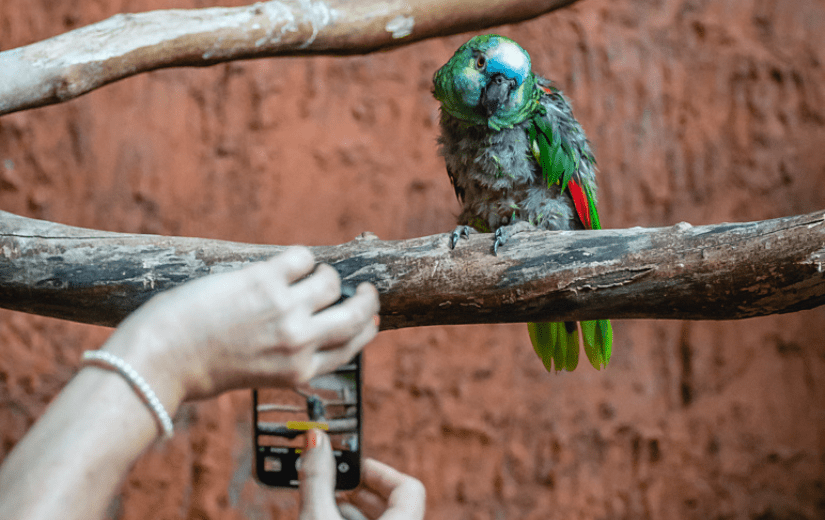
2. Say ‘no’ to selfies
Don’t take photos with exotic animals. These animals have all been removed from their normal homes and social groups, and are rarely kept in humane conditions. Wild animals still retain all their wild instincts, and experience stress when handled by people.
To make photos “safe” for tourists, the animals may be drugged or mutilated. For example, tigers are drugged for up-close photo opportunities, parrots have their wings clipped, and snakes (and even mammals) may have teeth and/or poison glands removed.
Animals like parrots, monkeys or bears are often poached from their mothers to make money. Poaching comes at a devastating cost for the animals and the environment. Don’t take part.
3. Don’t feed the animals
Don’t feed the animals – feeding habituates animals to be around humans and threatens their survival in the long term. Avoid tour companies that use food to bait wildlife for viewing and photo opportunities.
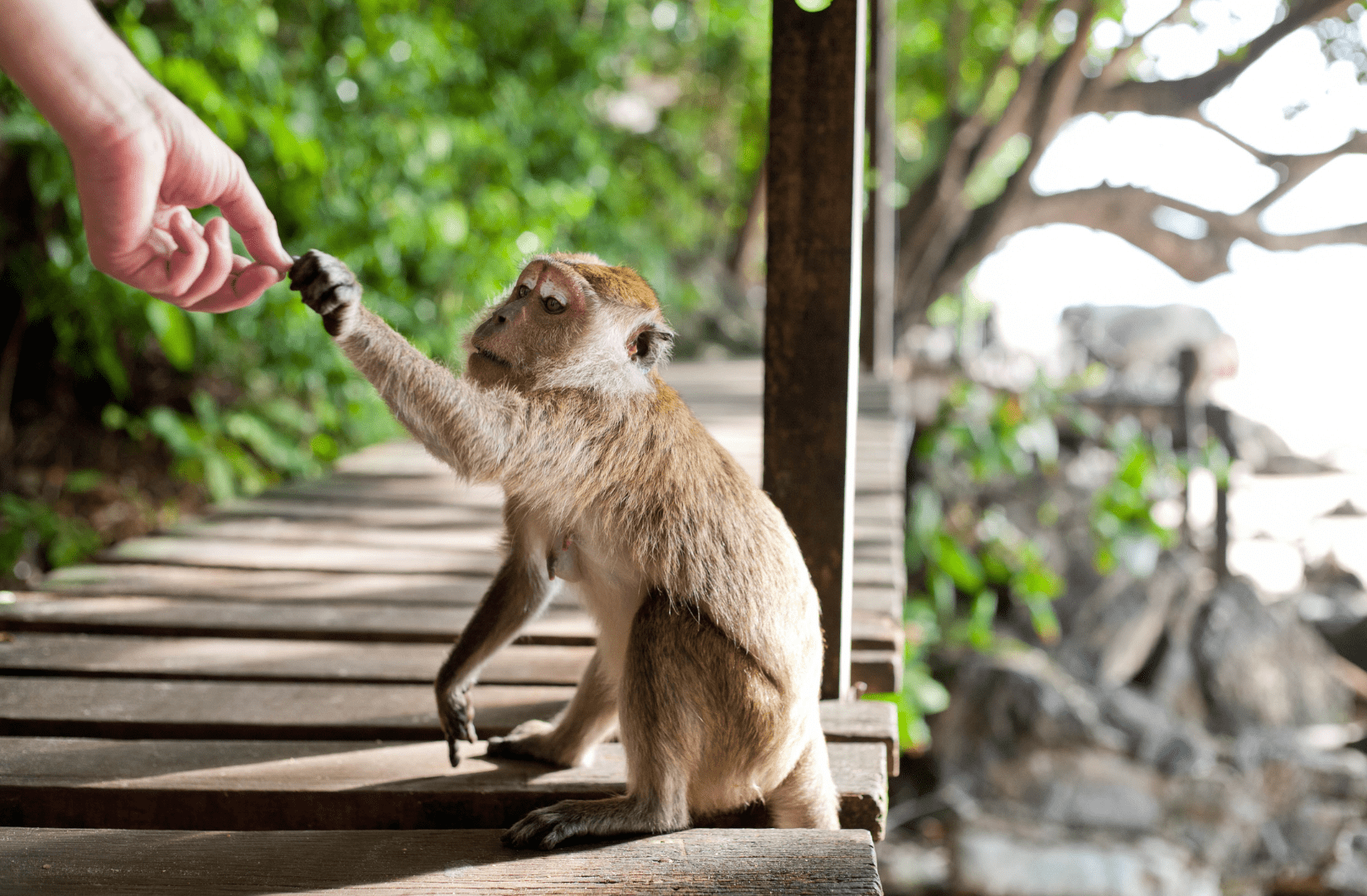
Habituated animals are more likely to be hit by cars, caught by predators, or trapped and killed when they are perceived as a “nuisance” or public safety risk. When animals get used to having an artificial abundance of food from tourists, they can starve or become stressed and aggressive when the food runs out. Feeding by tourists often leaves problems behind for the local communities, long after the tourists have left. Feeding wildlife can lead to injury, illness or even death, for both people and wild animals.
Big or small, don’t feed the animals.
4. Buyer beware
Some trinkets and jewelry in shops and local markets are made from wildlife parts like shark teeth, pieces of turtle shell, seahorses or coral. Some of these items may come from endangered animals and could be restricted by international law. Unregulated overharvesting destroys coral reefs and endangers wild animal populations.
Shoes, purses, wallets, belts and watches are often made from animal skins like snake, lizard and shark. Some of these animals may be endangered or restricted by international law.
If you aren’t sure if a product or souvenir comes from an endangered animal, don’t buy it. Products are often mislabelled or not labelled at all.
Read the label. Some cosmetics, perfumes or creams are made with animal products like shark liver, sperm whale bile (ambergris), turtle oil, muskrat and beaver genitals (castor) and lac bugs (shellac). Endangered animal parts can also be found in medicines, toothpaste, shampoos and even wine. Some traditional medicines may contain rhino horn, tiger penis, or bear bile that is painfully pulled from bears kept in tiny cages. No matter the use, the exploitation of endangered animals can harm the recovery of a species.
Check the menu. Restaurants sometimes have hidden cruelty in their menu items or serve endangered wildlife species. Don’t buy shark fin soup, frog legs, or sea turtle meat, and don’t be fooled by exotic drinks like coffee beans from civet cats (kopi luwak).
5. Don’t bring them home
Leave the sea shell by the sea shore! In some countries, sea shells are protected. Sea shells provide homes for animals like hermit crabs and triton, but these animals may be killed and overharvested for their shells for jewelry, souvenirs and trinkets.
Don’t buy exotic pets. The majority of exotic pets taken from the wild suffer or die long before they reach the pet store. For those sold in pet stores, 75 per cent die within their first year. The exotic wildlife trade is tied to violence and the drug and arms trade.
Don’t buy exotic plants. To harvest plants, poachers harm fragile ecosystems. Some of these plants are endangered or regulated. For example, wild orchids and Mexican cacti are harvested and sold all around the world.
6. Support local
Responsible tourism means travelling with care for animals, plants and people. By supporting local economies, you help ensure that communities have the funds needed to protect their animals and plants now and in the future. A healthy market for local wildlife tourism can help create sustainable employment for locals, alongside wildlife conservation.
Do your research – even “sanctuaries” or “rescues” can be harmful. Look up your activities before you go.
Tourism brings in a lot of money – choose wisely where to spend yours. If something doesn’t feel right, don’t buy in. When we make responsible choices with our wallet, sellers will notice.
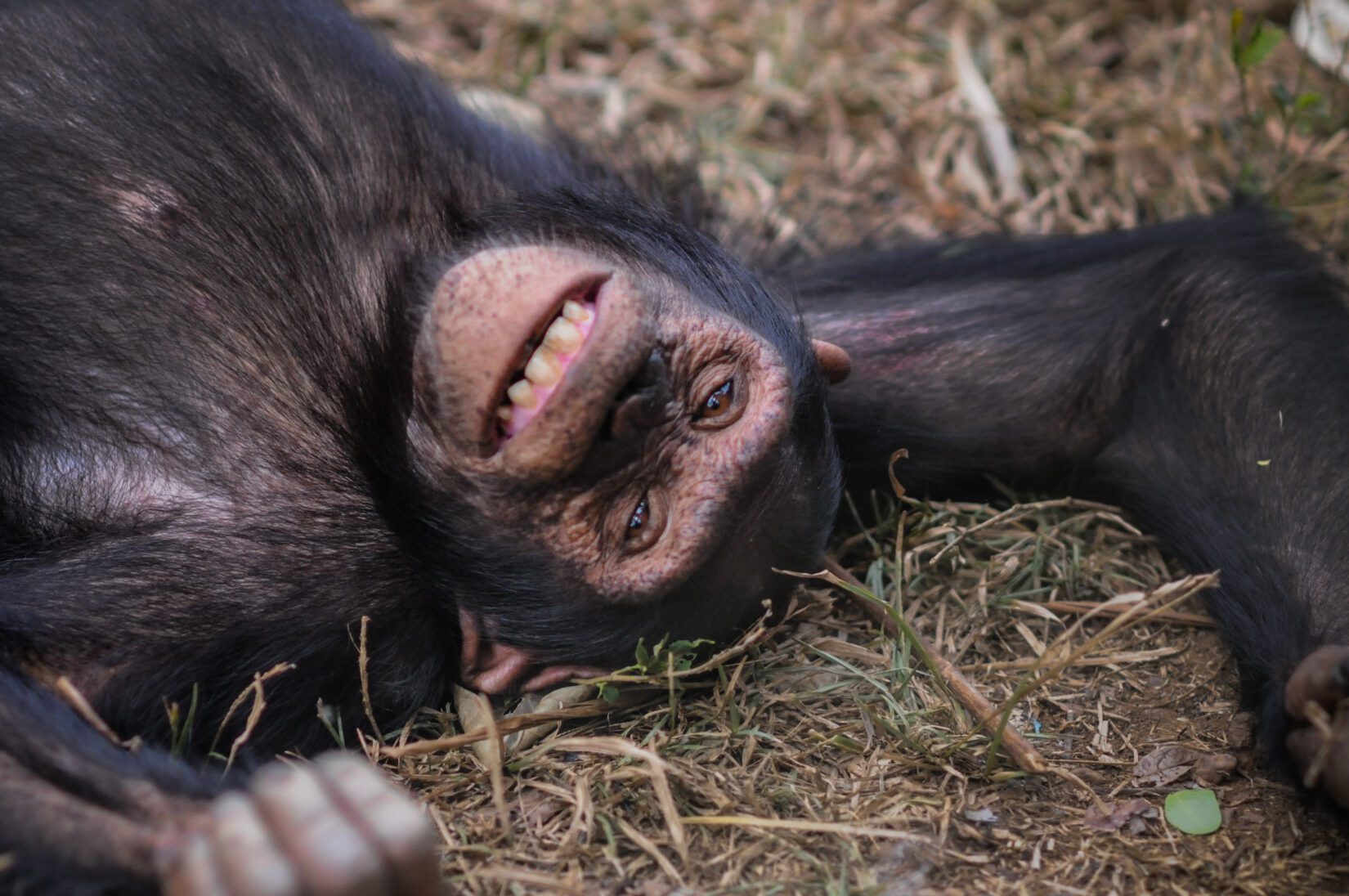
Subscribe to WildSense e-newsletter
Want to receive more stories like this, right in your inbox? Subscribe to WildSense, our bi-monthly wildlife newsletter.

